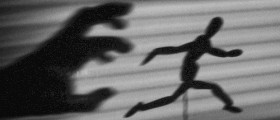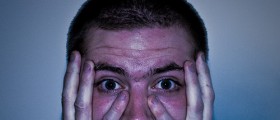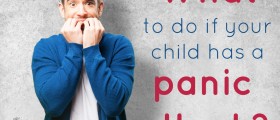
Dealing with Anxiety Attacks
Anyonecan experience an anxiety or panic attack, although some people are more susceptible than others. Those who suffer from them describe them as traumatic experiences. Most panic attacks do not last more than about 10 minutes, although some can last for up to half an hour.
Previousanxiety attacks are the best prediction of future ones. Those who experience these attacks often are advised to undergo examination as frequent attacks can be an indication of a disorder. A few common symptoms of anxiety attacks include chest pain, heart palpitations, racing heartbeat, trembling and sweating, and trouble breathing.
Peoplewill feel anxious in certain circumstances, but mostly this is just natural nervousness, and should not be mistaken for panic attacks. It is sometimes hard to distinguish between a heart attack or an asthma attack and an anxiety attack, so people with those conditions must take extra precautions if they are also susceptible to panic attacks. A doctor consultation is advised.
Phobiascan most often trigger panic attacks that are only removed when the object of the phobia is removed. Sometimes, anxiety attacks can cause other anxiety attacks, leading to a chain reaction that can last for days. Fortunately, treating frequent anxiety attacks is possible; a doctor consultation is obviously the first step. Certain relaxation methods, such as yoga, meditation, exercise and cognitive behaviour therapy can all help. However, non-prescription medication is notadvised.
Treatment
Anxietycan become a serious problem for some people. Although nerves and anxiousness is normal for humans in certain circumstances, such as confronting a phobia or when addressing a large group of people, experiencing these feelings often is not healthy. Most people can handle these feelings with no issue after the event, but in some people these feelings are much more intense or long lasting and may require medical advice to deal with.
Millionsof people worldwide deal with elevated levels of anxiety every day, with a percentage of that being so severe that an individual cannot deal with it alone. This problem can grow to consume their lives, leading to an inability to focus or do every day activities.
Mostpeople generally feel much healthier and more energetic after undergoing treatment for anxiety attacks. Behaviour therapy, as mentioned above, can help minimise the impact of anxiety attacks or eliminate them entirely, as this type of therapy modifies troubling behaviour that would lead to stress. Intellectual treatment helps the patient to deal with their anxiety by changing the way they think about certain subjects, which works well in combination with psychiatric treatment. Relaxation training and exercises will help minimise the intensity and frequency of anxiety attacks.

















Your thoughts on this
Loading...